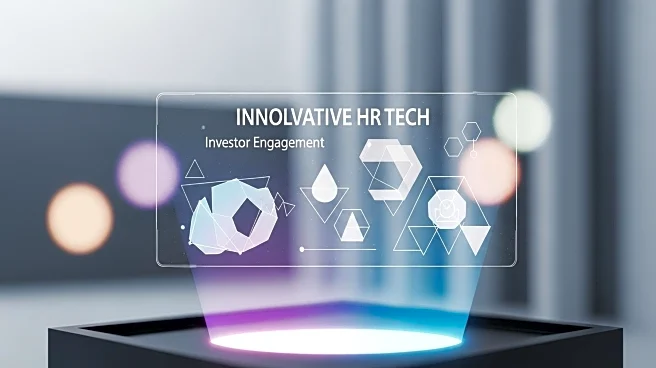What's Happening?
The HR Tech 2025 conference in Las Vegas showcased the future of HR technology, focusing on investment trends and startup innovation. The Investor Experience connected investors with early- and growth-stage firms, facilitating real-time evaluations and deal discoveries. Despite global economic challenges, investment in HR technology remains strong, with $3.55 billion invested in the first half of 2025. The conference emphasized practical applications of AI, data security, and ROI as priority features. The HR Tech Pitchfest highlighted startups like SonicJobs and Spirence, which demonstrated innovative solutions for candidate engagement and mental health, respectively.
Why It's Important?
The HR Tech 2025 conference underscores the growing importance of technology in transforming HR practices. With significant investments in AI-driven platforms, the industry is moving towards more efficient and scalable solutions. This shift is crucial for businesses seeking to enhance productivity and employee empowerment. The focus on practical applications and measurable outcomes reflects a broader trend towards data-driven decision-making in HR. As companies continue to invest in technology, they are likely to see improvements in hiring processes, employee wellbeing, and overall organizational efficiency.
What's Next?
The HR technology sector is expected to continue its rapid evolution, driven by advancements in AI and data analytics. Investors and startups will likely focus on developing solutions that offer clear cost savings and productivity boosts. The ongoing consolidation in the industry, with larger firms acquiring niche tech players, suggests a trend towards expanding capabilities and scaling operations. As the sector advances, the lessons from the HR Tech 2025 conference will guide future investments and innovations, emphasizing the need for platforms that deliver tangible business results.
Beyond the Headlines
The conference highlighted the ethical and cultural dimensions of HR technology, particularly in terms of AI's role in shaping workplace dynamics. As AI becomes more integrated into HR practices, companies must navigate the balance between automation and human-centered design. The focus on ambient and generative AI raises questions about the future of work and the potential for technology to redefine traditional roles and responsibilities. These developments could lead to long-term shifts in how organizations approach talent management and employee engagement.











